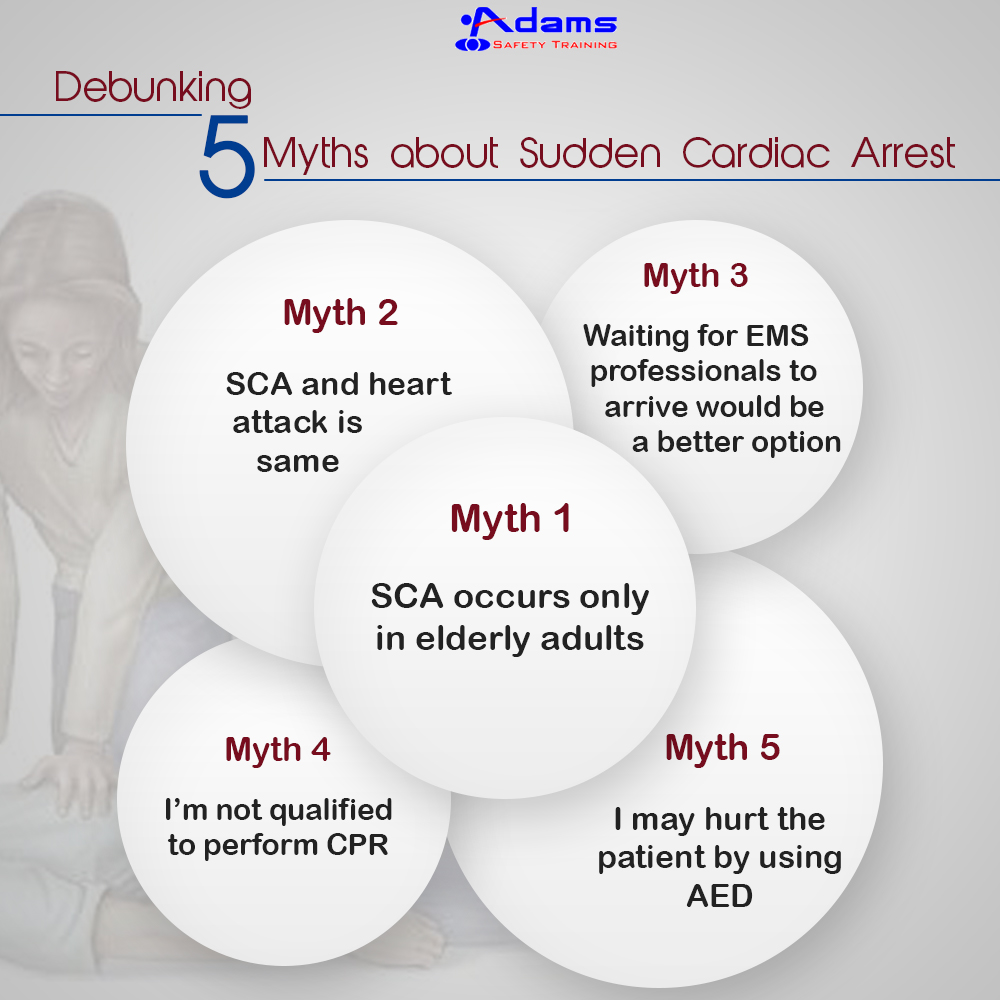Sudden cardiac arrest (SCA), the leading cause of death in the U.S., affects nearly 326,000 people of all ages in the U.S. every year. More than 65% of Americans underestimate the seriousness of SCA. They believe SCA to be a type of heart attack. There are five common myths about SCA that act as a barrier to bystander action.
• Myth #1: SCA occurs only in elderly adults: SCA occurs in all age groups including the senior people, athletes and teenage group.
• Myth #2: SCA and heart attack is same: Heart attacks generally occur in individuals with an existing heart condition. In SCA, victims lose consciousness immediately, which can cause brain damage if not treated within first few minutes. However, in heart attack, patient has a chance to arrive at a hospital for receiving treatment.
• Myth #3: Waiting for EMS professionals to arrive would be a better option: EMS professionals generally take in an average 11 minutes to arrive at the emergency site. Bystander intervention before they arrive may make a difference between life and death for the victim.
• Myth #4: I’m not qualified to perform CPR: SCA victim’s chance of survival increases with cardiopulmonary resuscitation (CPR). People can take CPR training course or learn hands-only CPR to save a life during emergency. During the National CPR/AED Awareness week in June 2015, the American Heart Association encouraged all Americans to learn and use hands-only CPR if they have difficulty remembering conventional CPR.
• Myth #5: I may hurt the patient by using AED: Though AEDs are complicated instruments but not difficult to operate once you’re trained in it. A SCA patient must be revived within 5 minutes using AED in order to avoid brain damage.

October is the National Sudden Cardiac Arrest Awareness Month, dedicated to educating public about what SCA is, myths to be avoided, and how to respond in a SCA emergency. Get trained in CPR and support the community during the SCA Awareness Month.

